@import url(https://www.ratisbonne.org.il/bk/wp-content/plugins/siteorigin-panels/css/front-flex.min.css); #pgc-3958-0-0 , #pgc-3958-0-2 { width:10%;width:calc(10% – ( 0.9 * 30px ) ) } #pgc-3958-0-1 { width:80%;width:calc(80% – ( 0.2 * 30px ) ) } #pl-3958 #panel-3958-0-1-0 { } #pl-3958 .so-panel { margin-bottom:30px } #pl-3958 .so-panel:last-child { margin-bottom:0px } #pg-3958-0.panel-no-style, #pg-3958-0.panel-has-style > .panel-row-style { -webkit-align-items:flex-start;align-items:flex-start } @media (max-width:780px){ #pg-3958-0.panel-no-style, #pg-3958-0.panel-has-style > .panel-row-style { -webkit-flex-direction:column;-ms-flex-direction:column;flex-direction:column } #pg-3958-0 .panel-grid-cell { margin-right:0 } #pg-3958-0 .panel-grid-cell { width:100% } #pgc-3958-0-0 , #pgc-3958-0-1 { margin-bottom:30px } #pl-3958 .panel-grid-cell { padding:0 } #pl-3958 .panel-grid .panel-grid-cell-empty { display:none } #pl-3958 .panel-grid .panel-grid-cell-mobile-last { margin-bottom:0px } }
The Sixteenth Sunday in Ordinary Time
@import url(https://www.ratisbonne.org.il/bk/wp-content/plugins/siteorigin-panels/css/front-flex.min.css); #pgc-3948-0-0 , #pgc-3948-0-2 { width:10%;width:calc(10% – ( 0.9 * 30px ) ) } #pgc-3948-0-1 { width:80%;width:calc(80% – ( 0.2 * 30px ) ) } #pl-3948 #panel-3948-0-1-0 { } #pl-3948 .so-panel { margin-bottom:30px } #pl-3948 .so-panel:last-child { margin-bottom:0px } #pg-3948-0.panel-no-style, #pg-3948-0.panel-has-style > .panel-row-style { -webkit-align-items:flex-start;align-items:flex-start } @media (max-width:780px){ #pg-3948-0.panel-no-style, #pg-3948-0.panel-has-style > .panel-row-style { -webkit-flex-direction:column;-ms-flex-direction:column;flex-direction:column } #pg-3948-0 .panel-grid-cell { margin-right:0 } #pg-3948-0 .panel-grid-cell { width:100% } #pgc-3948-0-0 , #pgc-3948-0-1 { margin-bottom:30px } #pl-3948 .panel-grid-cell { padding:0 } #pl-3948 .panel-grid .panel-grid-cell-empty { display:none } #pl-3948 .panel-grid .panel-grid-cell-mobile-last { margin-bottom:0px } }
Parashat Devarim
@import url(https://www.ratisbonne.org.il/bk/wp-content/plugins/siteorigin-panels/css/front-flex.min.css); #pgc-3939-0-0 , #pgc-3939-0-2 { width:10%;width:calc(10% – ( 0.9 * 30px ) ) } #pgc-3939-0-1 { width:80%;width:calc(80% – ( 0.2 * 30px ) ) } #pl-3939 #panel-3939-0-1-0 { } #pl-3939 .so-panel { margin-bottom:30px } #pl-3939 .so-panel:last-child { margin-bottom:0px } #pg-3939-0.panel-no-style, #pg-3939-0.panel-has-style > .panel-row-style { -webkit-align-items:flex-start;align-items:flex-start } @media (max-width:780px){ #pg-3939-0.panel-no-style, #pg-3939-0.panel-has-style > .panel-row-style { -webkit-flex-direction:column;-ms-flex-direction:column;flex-direction:column } #pg-3939-0 .panel-grid-cell { margin-right:0 } #pg-3939-0 .panel-grid-cell { width:100% } #pgc-3939-0-0 , #pgc-3939-0-1 { margin-bottom:30px } #pl-3939 .panel-grid-cell { padding:0 } #pl-3939 .panel-grid .panel-grid-cell-empty { display:none } #pl-3939 .panel-grid .panel-grid-cell-mobile-last { margin-bottom:0px } }
Parashat Mattot/Massei
@import url(https://www.ratisbonne.org.il/bk/wp-content/plugins/siteorigin-panels/css/front-flex.min.css); #pgc-3917-0-0 , #pgc-3917-0-2 { width:10%;width:calc(10% – ( 0.9 * 30px ) ) } #pgc-3917-0-1 { width:80%;width:calc(80% – ( 0.2 * 30px ) ) } #pl-3917 #panel-3917-0-1-0 { } #pl-3917 .so-panel { margin-bottom:30px } #pl-3917 .so-panel:last-child { margin-bottom:0px } #pg-3917-0.panel-no-style, #pg-3917-0.panel-has-style > .panel-row-style { -webkit-align-items:flex-start;align-items:flex-start } @media (max-width:780px){ #pg-3917-0.panel-no-style, #pg-3917-0.panel-has-style > .panel-row-style { -webkit-flex-direction:column;-ms-flex-direction:column;flex-direction:column } #pg-3917-0 .panel-grid-cell { margin-right:0 } #pg-3917-0 .panel-grid-cell { width:100% } #pgc-3917-0-0 , #pgc-3917-0-1 { margin-bottom:30px } #pl-3917 .panel-grid-cell { padding:0 } #pl-3917 .panel-grid .panel-grid-cell-empty { display:none } #pl-3917 .panel-grid .panel-grid-cell-mobile-last { margin-bottom:0px } }
Parashat Pinchas
@import url(https://www.ratisbonne.org.il/bk/wp-content/plugins/siteorigin-panels/css/front-flex.min.css); #pgc-3879-0-0 , #pgc-3879-0-2 { width:10%;width:calc(10% – ( 0.9 * 30px ) ) } #pgc-3879-0-1 { width:80%;width:calc(80% – ( 0.2 * 30px ) ) } #pl-3879 #panel-3879-0-1-0 { } #pl-3879 .so-panel { margin-bottom:30px } #pl-3879 .so-panel:last-child { margin-bottom:0px } #pg-3879-0.panel-no-style, #pg-3879-0.panel-has-style > .panel-row-style { -webkit-align-items:flex-start;align-items:flex-start } @media (max-width:780px){ #pg-3879-0.panel-no-style, #pg-3879-0.panel-has-style > .panel-row-style { -webkit-flex-direction:column;-ms-flex-direction:column;flex-direction:column } #pg-3879-0 .panel-grid-cell { margin-right:0 } #pg-3879-0 .panel-grid-cell { width:100% } #pgc-3879-0-0 , #pgc-3879-0-1 { margin-bottom:30px } #pl-3879 .panel-grid-cell { padding:0 } #pl-3879 .panel-grid .panel-grid-cell-empty { display:none } #pl-3879 .panel-grid .panel-grid-cell-mobile-last { margin-bottom:0px } }
Parashat Balak
@import url(https://www.ratisbonne.org.il/bk/wp-content/plugins/siteorigin-panels/css/front-flex.min.css); #pgc-3685-0-0 , #pgc-3685-0-2 { width:10%;width:calc(10% – ( 0.9 * 30px ) ) } #pgc-3685-0-1 { width:80%;width:calc(80% – ( 0.2 * 30px ) ) } #pl-3685 #panel-3685-0-1-0 { } #pl-3685 .so-panel { margin-bottom:30px } #pl-3685 .so-panel:last-child { margin-bottom:0px } #pg-3685-0.panel-no-style, #pg-3685-0.panel-has-style > .panel-row-style { -webkit-align-items:flex-start;align-items:flex-start } @media (max-width:780px){ #pg-3685-0.panel-no-style, #pg-3685-0.panel-has-style > .panel-row-style { -webkit-flex-direction:column;-ms-flex-direction:column;flex-direction:column } #pg-3685-0 .panel-grid-cell { margin-right:0 } #pg-3685-0 .panel-grid-cell { width:100% } #pgc-3685-0-0 , #pgc-3685-0-1 { margin-bottom:30px } #pl-3685 .panel-grid-cell { padding:0 } #pl-3685 .panel-grid .panel-grid-cell-empty { display:none } #pl-3685 .panel-grid .panel-grid-cell-mobile-last { margin-bottom:0px } }
Parashat Chukat
@import url(https://www.ratisbonne.org.il/bk/wp-content/plugins/siteorigin-panels/css/front-flex.min.css); #pgc-3578-0-0 , #pgc-3578-0-2 { width:10%;width:calc(10% – ( 0.9 * 30px ) ) } #pgc-3578-0-1 { width:80%;width:calc(80% – ( 0.2 * 30px ) ) } #pl-3578 #panel-3578-0-1-0 { } #pl-3578 .so-panel { margin-bottom:30px } #pl-3578 .so-panel:last-child { margin-bottom:0px } #pg-3578-0.panel-no-style, #pg-3578-0.panel-has-style > .panel-row-style { -webkit-align-items:flex-start;align-items:flex-start } @media (max-width:780px){ #pg-3578-0.panel-no-style, #pg-3578-0.panel-has-style > .panel-row-style { -webkit-flex-direction:column;-ms-flex-direction:column;flex-direction:column } #pg-3578-0 .panel-grid-cell { margin-right:0 } #pg-3578-0 .panel-grid-cell { width:100% } #pgc-3578-0-0 , #pgc-3578-0-1 { margin-bottom:30px } #pl-3578 .panel-grid-cell { padding:0 } #pl-3578 .panel-grid .panel-grid-cell-empty { display:none } #pl-3578 .panel-grid .panel-grid-cell-mobile-last { margin-bottom:0px } }
Parashat Korach
@import url(https://www.ratisbonne.org.il/bk/wp-content/plugins/siteorigin-panels/css/front-flex.min.css); #pgc-3539-0-0 , #pgc-3539-0-2 { width:10%;width:calc(10% – ( 0.9 * 30px ) ) } #pgc-3539-0-1 { width:80%;width:calc(80% – ( 0.2 * 30px ) ) } #pl-3539 #panel-3539-0-1-0 { } #pl-3539 .so-panel { margin-bottom:30px } #pl-3539 .so-panel:last-child { margin-bottom:0px } #pg-3539-0.panel-no-style, #pg-3539-0.panel-has-style > .panel-row-style { -webkit-align-items:flex-start;align-items:flex-start } @media (max-width:780px){ #pg-3539-0.panel-no-style, #pg-3539-0.panel-has-style > .panel-row-style { -webkit-flex-direction:column;-ms-flex-direction:column;flex-direction:column } #pg-3539-0 .panel-grid-cell { margin-right:0 } #pg-3539-0 .panel-grid-cell { width:100% } #pgc-3539-0-0 , #pgc-3539-0-1 { margin-bottom:30px } #pl-3539 .panel-grid-cell { padding:0 } #pl-3539 .panel-grid .panel-grid-cell-empty { display:none } #pl-3539 .panel-grid .panel-grid-cell-mobile-last { margin-bottom:0px } }
Parashat Shelach Lecha
@import url(https://www.ratisbonne.org.il/bk/wp-content/plugins/siteorigin-panels/css/front-flex.min.css); #pgc-3488-0-0 , #pgc-3488-0-2 { width:10%;width:calc(10% – ( 0.9 * 30px ) ) } #pgc-3488-0-1 { width:80%;width:calc(80% – ( 0.2 * 30px ) ) } #pl-3488 #panel-3488-0-1-0 { } #pl-3488 .so-panel { margin-bottom:30px } #pl-3488 .so-panel:last-child { margin-bottom:0px } #pg-3488-0.panel-no-style, #pg-3488-0.panel-has-style > .panel-row-style { -webkit-align-items:flex-start;align-items:flex-start } @media (max-width:780px){ #pg-3488-0.panel-no-style, #pg-3488-0.panel-has-style > .panel-row-style { -webkit-flex-direction:column;-ms-flex-direction:column;flex-direction:column } #pg-3488-0 .panel-grid-cell { margin-right:0 } #pg-3488-0 .panel-grid-cell { width:100% } #pgc-3488-0-0 , #pgc-3488-0-1 { margin-bottom:30px } #pl-3488 .panel-grid-cell { padding:0 } #pl-3488 .panel-grid .panel-grid-cell-empty { display:none } #pl-3488 .panel-grid .panel-grid-cell-mobile-last { margin-bottom:0px } }
Parashat Behalotcha
@import url(https://www.ratisbonne.org.il/bk/wp-content/plugins/siteorigin-panels/css/front-flex.min.css); #pgc-3399-0-0 , #pgc-3399-0-2 { width:10%;width:calc(10% – ( 0.9 * 30px ) ) } #pgc-3399-0-1 { width:80%;width:calc(80% – ( 0.2 * 30px ) ) } #pl-3399 #panel-3399-0-1-0 { } #pl-3399 .so-panel { margin-bottom:30px } #pl-3399 .so-panel:last-child { margin-bottom:0px } #pg-3399-0.panel-no-style, #pg-3399-0.panel-has-style > .panel-row-style { -webkit-align-items:flex-start;align-items:flex-start } @media (max-width:780px){ #pg-3399-0.panel-no-style, #pg-3399-0.panel-has-style > .panel-row-style { -webkit-flex-direction:column;-ms-flex-direction:column;flex-direction:column } #pg-3399-0 .panel-grid-cell { margin-right:0 } #pg-3399-0 .panel-grid-cell { width:100% } #pgc-3399-0-0 , #pgc-3399-0-1 { margin-bottom:30px } #pl-3399 .panel-grid-cell { padding:0 } #pl-3399 .panel-grid .panel-grid-cell-empty { display:none } #pl-3399 .panel-grid .panel-grid-cell-mobile-last { margin-bottom:0px } }
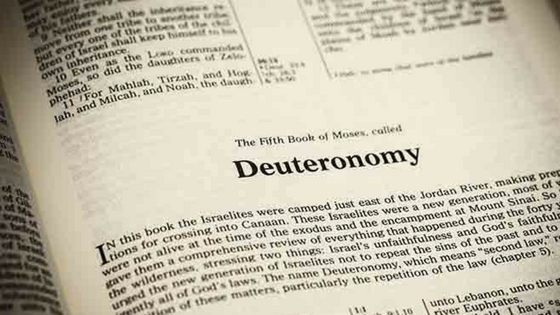
 In this week’s parashah ‘words’ are again in focus. The quality of how words are heard is significant, even a matter of life and death. (6:34) God uses words to dynamically engage in people’s lives and, in turn, the people’s own narrative is shaped by their response, as can be seen in the covenantal theme of all that God has done for the people and what they must do in response. (6:20-25)
In this week’s parashah ‘words’ are again in focus. The quality of how words are heard is significant, even a matter of life and death. (6:34) God uses words to dynamically engage in people’s lives and, in turn, the people’s own narrative is shaped by their response, as can be seen in the covenantal theme of all that God has done for the people and what they must do in response. (6:20-25)
 The apostles returned from their first public ministry. Gathered and reunited with Jesus and each other, they shared what they had done and taught. Jesus invited them to “Come away to a deserted place and rest for a while.” Their rhythm of life had been filled with intense activity, attending to the needs of the people. Jesus then redirected their attention back to an essential element of being able to participate well in his mission, simply being, seeking time and space for solitude and rest.
The apostles returned from their first public ministry. Gathered and reunited with Jesus and each other, they shared what they had done and taught. Jesus invited them to “Come away to a deserted place and rest for a while.” Their rhythm of life had been filled with intense activity, attending to the needs of the people. Jesus then redirected their attention back to an essential element of being able to participate well in his mission, simply being, seeking time and space for solitude and rest.
 Devarim is the Hebrew title for the whole book of Deuteronomy and for this particular parashah and it means, among other things, ‘words’. Although written after Moses was alive, the book contains various speeches attributed to him, spoken in the final stages of his life as he looks back over the years since leaving Egypt. Devarim recounts, with some variations, much of what has happened in Exodus, Leviticus and Numbers, and revisits the commandments of God and the importance of obeying them.
Devarim is the Hebrew title for the whole book of Deuteronomy and for this particular parashah and it means, among other things, ‘words’. Although written after Moses was alive, the book contains various speeches attributed to him, spoken in the final stages of his life as he looks back over the years since leaving Egypt. Devarim recounts, with some variations, much of what has happened in Exodus, Leviticus and Numbers, and revisits the commandments of God and the importance of obeying them.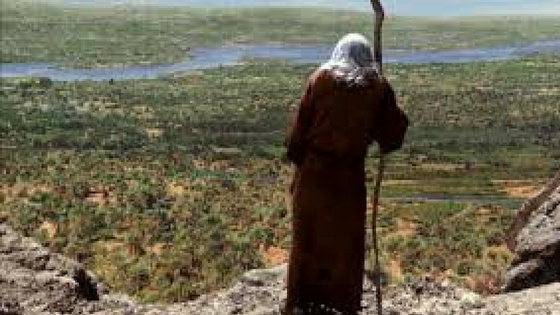
 This week’ reading represents a perfect conclusion of the Fourth book of Torah having its focus in the main theme of the whole Book of Numbers: journey in the wilderness. This great experience of being strangers and pilgrims filled with desire to inherit the Promised Land determines the origins of Israel.
This week’ reading represents a perfect conclusion of the Fourth book of Torah having its focus in the main theme of the whole Book of Numbers: journey in the wilderness. This great experience of being strangers and pilgrims filled with desire to inherit the Promised Land determines the origins of Israel.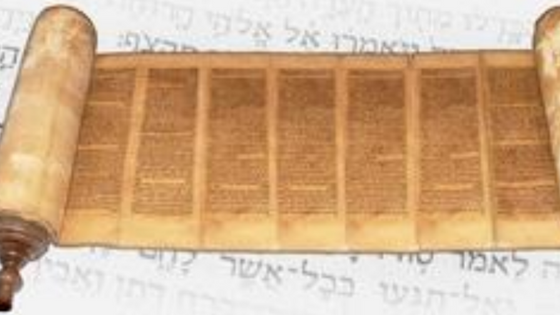

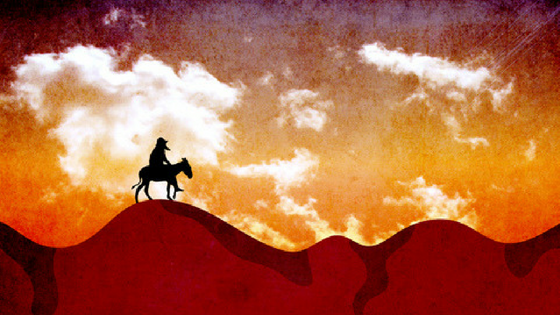
 Every time I write a Sunday or a Torah commentary, the sweet memories of Bat Kol flood my mind; the wisdom of the classroom learning and the havrutah, the weekend trips to sacred sanctuaries, the sacredness of the dry desert experience, Shabbat Meals and praying in the synagogues, the Rabbis and the Professors who assisted us in the excavation of the Word. The late Brother Jack Driscoll in his very humble and humorous style of teaching, always encouraging us. Jack always reminded us, please try to read the whole Torah portion for the week. If you can’t, read at least a few chapters, if not, try and read one chapter and if you are really struggling, just read the first verse of the Parashat Hashavuah (Torah portion for the week), where the title of the Torah portion is taken from. You are great Bro. Jack Driscoll, and to all of you, who are called to a live a life of service at Bat Kol Institute.
Every time I write a Sunday or a Torah commentary, the sweet memories of Bat Kol flood my mind; the wisdom of the classroom learning and the havrutah, the weekend trips to sacred sanctuaries, the sacredness of the dry desert experience, Shabbat Meals and praying in the synagogues, the Rabbis and the Professors who assisted us in the excavation of the Word. The late Brother Jack Driscoll in his very humble and humorous style of teaching, always encouraging us. Jack always reminded us, please try to read the whole Torah portion for the week. If you can’t, read at least a few chapters, if not, try and read one chapter and if you are really struggling, just read the first verse of the Parashat Hashavuah (Torah portion for the week), where the title of the Torah portion is taken from. You are great Bro. Jack Driscoll, and to all of you, who are called to a live a life of service at Bat Kol Institute.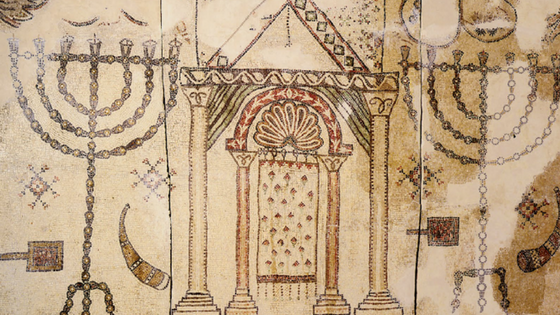


 The Levite rebels proclaim to Moses and Aaron: “ You have gone too far! For all the community is holy, all of them, and Adonai is in their midst. Why then do you raise yourselves above the Lord’s congregation?”(Numbers 16:3)
The Levite rebels proclaim to Moses and Aaron: “ You have gone too far! For all the community is holy, all of them, and Adonai is in their midst. Why then do you raise yourselves above the Lord’s congregation?”(Numbers 16:3)
 The ‘fight-or-flight” response, also known as the acute stress response, is a physiological reaction of human (and animal) that occurs in response to a perceived harmful attack, event or life threatening situations. The process begins in the brain and as a command center, communicates with the rest of the body to produce the energy to fight or flee. Instead of confidently and triumphantly entering the Promised Land two years after their escape to freedom and wandering in the wilderness, the chosen people of God were suddenly thrown into a panic and gave in to fear and wanted to flee, back to Egypt.
The ‘fight-or-flight” response, also known as the acute stress response, is a physiological reaction of human (and animal) that occurs in response to a perceived harmful attack, event or life threatening situations. The process begins in the brain and as a command center, communicates with the rest of the body to produce the energy to fight or flee. Instead of confidently and triumphantly entering the Promised Land two years after their escape to freedom and wandering in the wilderness, the chosen people of God were suddenly thrown into a panic and gave in to fear and wanted to flee, back to Egypt.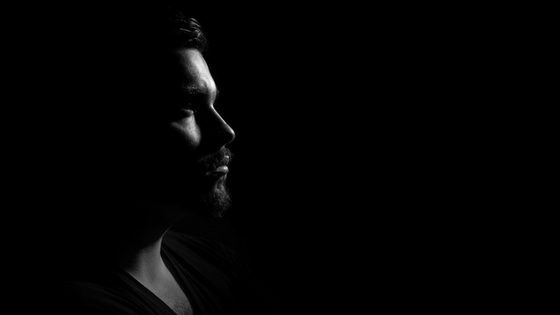
 There are many important themes held within this week’s parashah with its central focus on the inauguration of the Mishken. As I read I came to see more clearly the humanity of the three prominent figures in the Exodus journey, mainly the siblings, Aaron, Miriam and Moses, “For I brought you up from the land of Egypt and redeemed you from the house of slavery and sent before you Moses, Aaron and Miriam.” (Micah 6:4) These chosen three accompanied and guided the Israelites through the desert. I would like to focus on each of these three seeing them as very human characters in both their greatness and their weakness.
There are many important themes held within this week’s parashah with its central focus on the inauguration of the Mishken. As I read I came to see more clearly the humanity of the three prominent figures in the Exodus journey, mainly the siblings, Aaron, Miriam and Moses, “For I brought you up from the land of Egypt and redeemed you from the house of slavery and sent before you Moses, Aaron and Miriam.” (Micah 6:4) These chosen three accompanied and guided the Israelites through the desert. I would like to focus on each of these three seeing them as very human characters in both their greatness and their weakness.